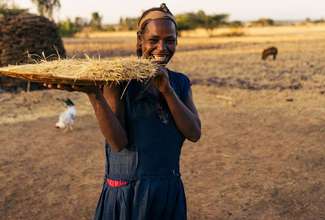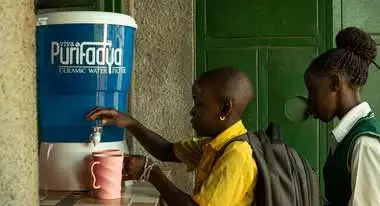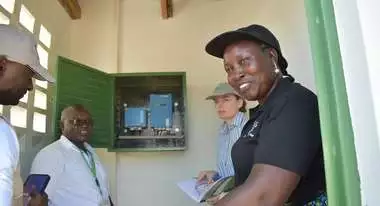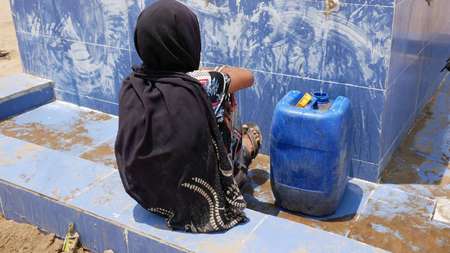
Providing Water for Refugees in Yemen
The humanitarian situation of the people in Yemen is considered one of the most dramatic in the world. Since the start of the civil war in 2014, at least two-thirds of the country's 30 million inhabitants have been living in extremely difficult conditions. More than four million of them are refugees in their own country.
Many are seeking shelter in the south, where they live in tents, temporary accommodation or with host communities. However, it is difficult to provide for themselves, as the already weak infrastructure is suffering further from the war: the currency has collapsed and the economy is idle. The lack of public funding has meant that basic services are barely functioning – this affects the operation of schools, hospitals and essentials such as the water distribution system, electricity supply and waste disposal.
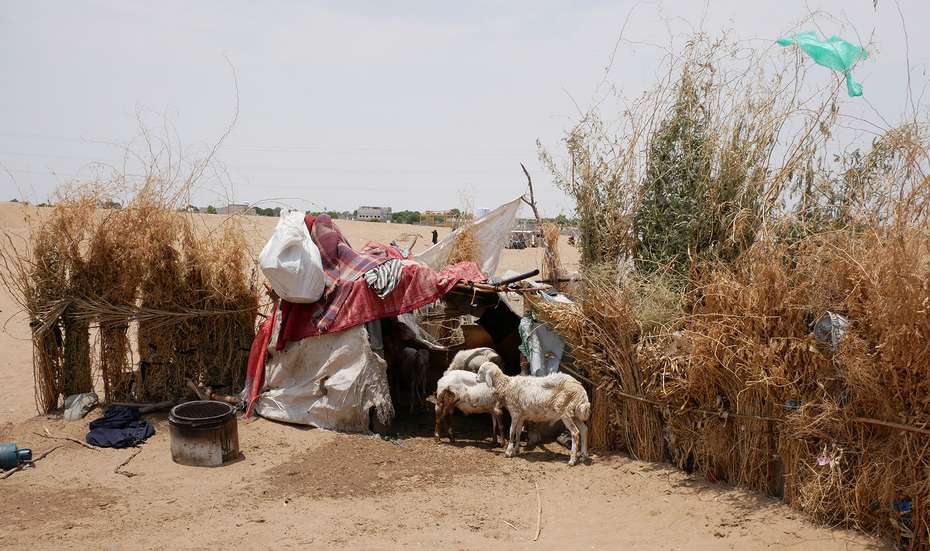
Creating dignified living conditions
The Lahij governorate in southwest Yemen is home to a particularly large number of internally displaced people. Welthungerhilfe (WHH) is working with its partner organization People In Need (PIN), which has identified the population’s most important needs and aims to improve their living conditions. The measures are already showing the first signs of success.
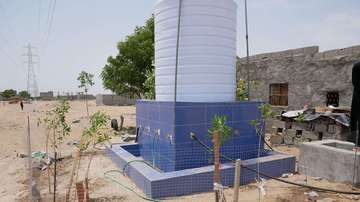
In Al-Anad, WHH and PIN have restored a drinking water well so people can access clean water. We work to explain important hygiene measures in training sessions and distribute hygiene products such as soap and detergent to the population. We also offer nutrition courses on how to provide the right nutrients for children. Women are also given tips on breastfeeding and disease prevention.
Reaching even more people
Around 200 households benefit from the well in Al-Anad, but it will soon reach 3,200. The rehabilitation of four more drinking water wells in two other districts is awaited. In cooperation with the local authorities, we have focused on places dependent on water transport. Sometimes the problem lies in the need for more power supply, as the pumps need power to work. To address this, we also install new solar panels where necessary.
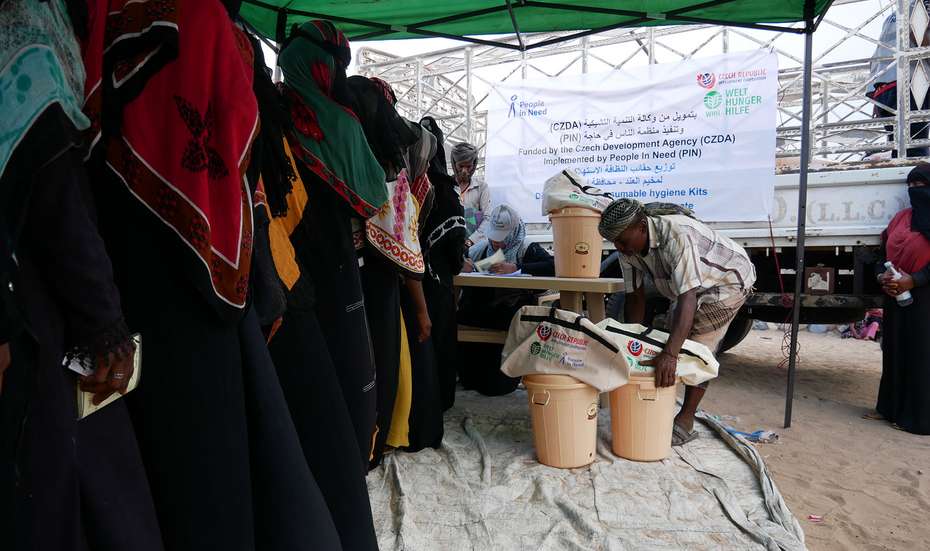
We also train residents to maintain and service the new facilities themselves in the long term. This maintenance includes regular water quality checks. In the final step, we focus on improving sanitary facilities in local schools and hospitals. The better the infrastructure in the conflict-affected areas functions again, the sooner the population can live in decent conditions again.
Our measures
- We are repairing drinking water wells in several communities in the governorate of Lahij.
- We install solar panels to ensure the functioning of water pumps.
- We train local people to maintain and repair drinking water systems.
- Our nutrition courses are aimed primarily at mothers so they can feed themselves and their children healthily.
- We distribute soap and detergent and emphasize the importance of good hygiene for disease prevention.
- In addition to supplying private households, we also improve the sanitary facilities of schools and hospitals in regions with large numbers of internally displaced persons.




